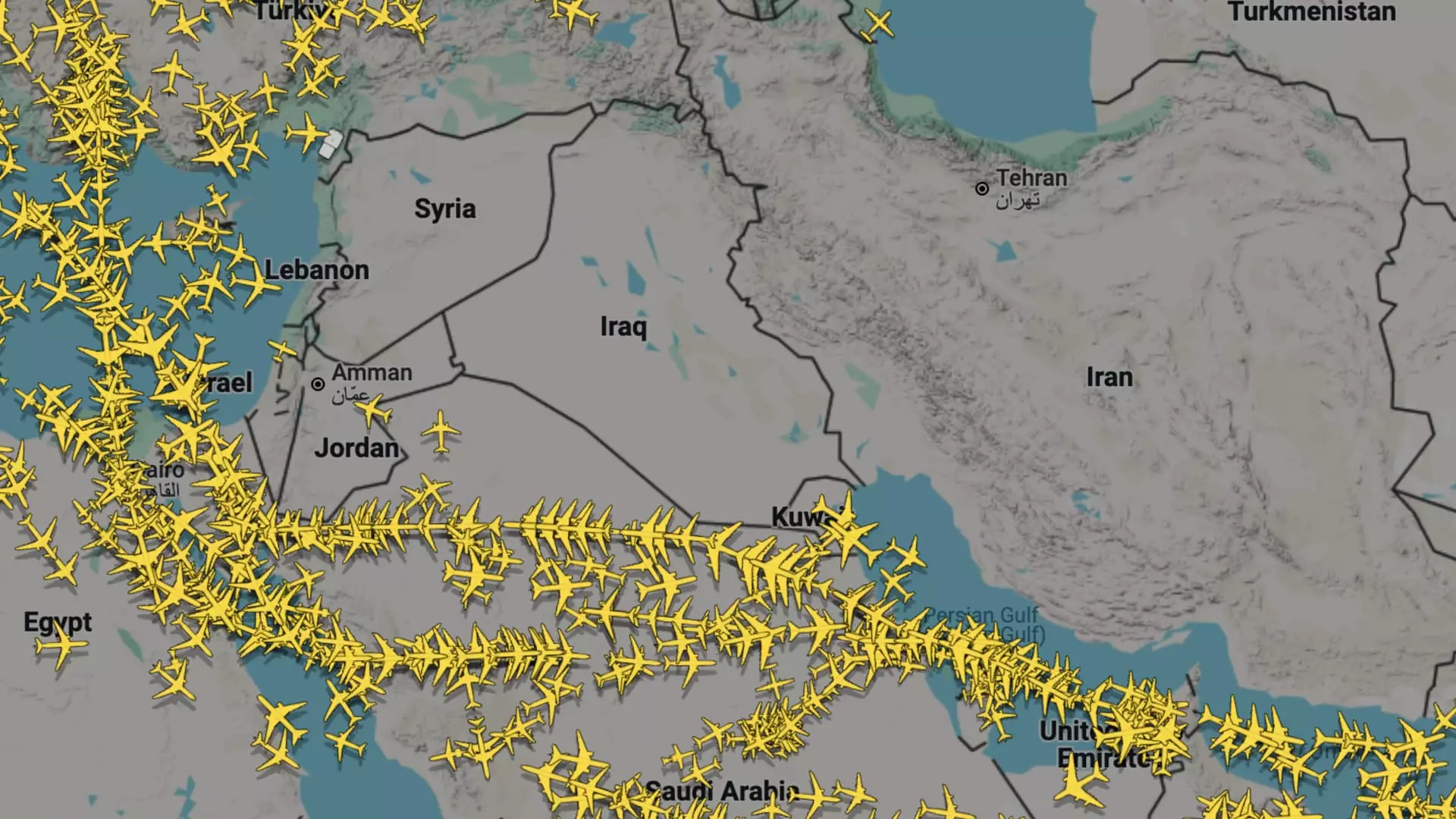Recent military escalations in the Middle East have sent ripples through global air travel, causing significant disruptions for millions of passengers. With nations like Israel and Iran engaging in hostilities, airlines have been compelled to prioritize safety over convenience. The swift cancellations of flights to Israel by major airlines like Delta and United illustrate a stark reality: in the face of danger, our reliance on interconnectedness can become severely hampered. This troubling trend not only affects travelers and businesses but also raises crucial questions about the efficacy of modern diplomacy and conflict resolution.
High Stakes and Heavy Consequences
As tensions flared, the swift and decisive actions taken by airlines underscore the high stakes involved. El Al, Israel’s flagship carrier, has suspended operations indefinitely, a move that highlights the severity of the current security situation. The situation doesn’t just disrupt travel plans; it has broader economic implications for the region and beyond. The potential for increased military conflict inevitably sends investors into a frenzy, and the cascading consequences could be felt across various sectors. By needing to reroute flights or cancel them altogether, airlines have also seen their own operational costs escalate—costs that will ultimately be passed on to consumers or absorbed by the companies.
Global Response and Political Ramifications
More troubling is the global response to these conflicts. Cancellations not only disrupt regional stability but also challenge the narrative of an increasingly globalized world. Airlines, which typically connect distant places and peoples, are now retreating into a cautious shell. This paints a grim picture of international relations, demonstrating how quickly the threads of globalization can unravel when faced with military aggression. While some argue that avoiding conflict zones is a responsible approach, one must wonder: what does this say about our global community’s commitment to peace and diplomacy? If the answer is flight cancellations and evasions, then what hope do we have for meaningful resolutions?
The Human Cost of Airline Decisions
The average traveler is often caught in the crosshairs of such geopolitical maneuvers. Beyond the immediate inconvenience, the plight of stranded or displaced passengers remains poignant. For many, travel to and from places like Tel Aviv is not merely about leisure; it’s about family, business, and cultural exchange. The chaos translated through airline cancellations serves as a stark reminder that the world’s interconnectedness can become a double-edged sword. The personal financial and emotional toll adds another layer of distress, as individuals and families are left to grapple with their uncertain futures in the wake of airline decisions.
This predicament compels us to confront uncomfortable truths about modern conflicts and their extensive implications. As we witness jet after jet being grounded, the desire for a safe and connected world clashes with the very real dangers that arise when nations decide to go to war. The result? A travel landscape marred by uncertainty and fear, challenging both the spirit of exploration and the efficacy of peacekeeping efforts in a rapidly changing world.


Leave a Reply